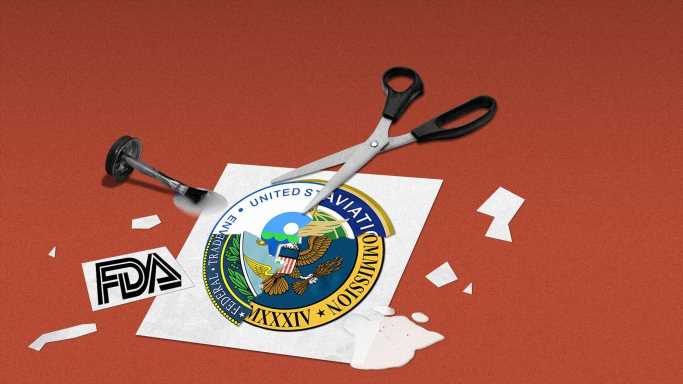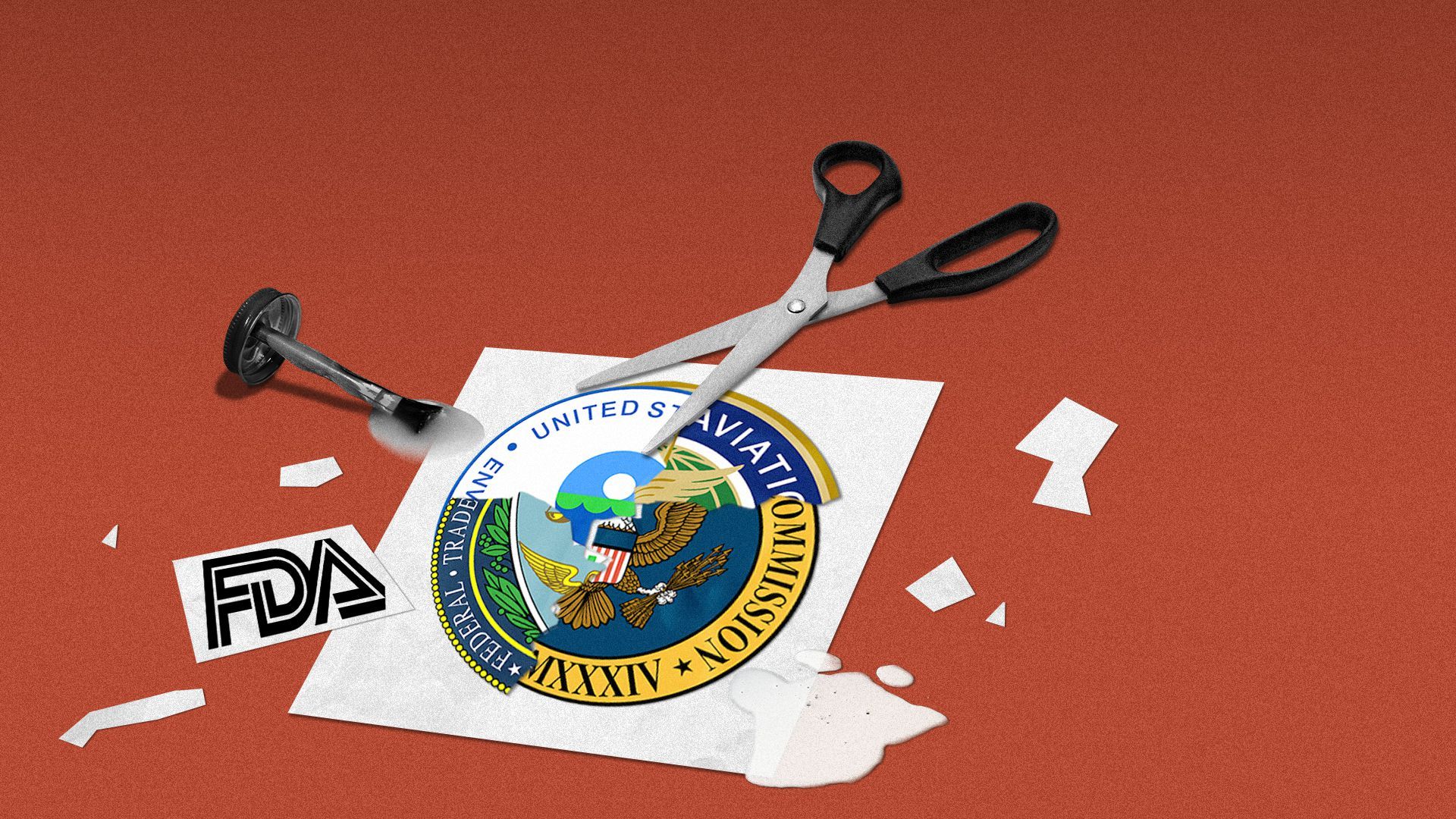The Supreme Court's next target is the executive branch
Illustration: Lindsey Bailey/Axios
Battles over the federal government's power will likely define a lot of the conservative Supreme Court's future.
The big picture: Abortion has been the single biggest animating force in the conservative legal movement for decades. Now that the Supreme Court has overturned Roe v. Wade — sooner than some advocates expected — other long-term projects will absorb much of the right’s legal and political energy.
- That will likely include voting rights as well as a sustained effort to restrict the authority of regulatory agencies in the executive branch.
Why it matters: These cases may not always feel like blockbusters in isolation, but they can constrain federal power in ways that are almost impossible to reverse, with dramatic implications that cut across multiple policy areas.
Driving the news: Just in the past few months, the court …
- Prevented the CDC from enforcing an eviction moratorium due to COVID.
- Prevented OSHA from enforcing a vaccine mandate in workplaces.
- Prevented the EPA from carrying out some of its most aggressive proposed limits on greenhouse gasses.
Some of those issues are bigger than others, but each of those cases raised questions about overarching legal principles related to executive-branch authority.
- Taken together, it's clear which direction things are headed — the federal government is going to be able to do a lot less than it has been able to do in the past.
- But the justices are not necessarily united on the specifics of how best to get there or how far to go.
How it works: Several of the court's conservative justices are highly skeptical of “Chevron deference” — the principle that, if a particular law isn’t clear on its face, the courts will generally defer to the interpretation of the agency tasked with implementing that law.
- In striking down EPA regulations, the OSHA vaccine mandate and the CDC’s eviction moratorium, the court leaned heavily on a different but related legal test, known as the "major questions" doctrine.
- It holds that executive-branch agencies can’t rely on the general authority they’ve received from Congress in order to justify particularly sweeping actions. If Congress had intended for the CDC to be able to halt evictions all across the country, the court said, it would have needed to say so explicitly.
At the outer bound of this campaign is the "nondelegation doctrine" — a theory that Congress cannot delegate to the executive branch any of the powers the Constitution gives to Congress.
- It's not carrying the day right now, but at least three justices seem to want to bring it back. When the court struck down OSHA's vaccine mandate, Justice Neil Gorsuch — joined by Justices Clarence Thomas and Samuel Alito — said that even if Congress had expressly given OSHA the power to impose a vaccine mandate, that likely would have been unconstitutional.
The bottom line: There are many ways for the conservative court to rein in federal agencies, and while there may not be a clear consensus on precisely which of those avenues to take at any given moment, one way or another, federal agencies exerting broad-based powers are already losing — and are almost certainly going to keep losing.
Source: Read Full Article




